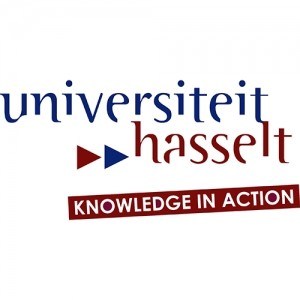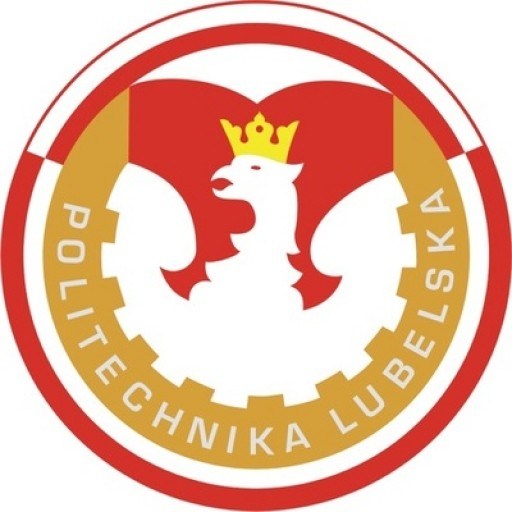Photos of university / #universiteithasselt
The Master of Science in Transportation Sciences at Hasselt University is a comprehensive, multidisciplinary program designed to equip students with the advanced knowledge and practical skills necessary to address the complex challenges of modern transportation systems. This programme focuses on the development, analysis, and management of sustainable and innovative transportation solutions that cater to the growing demand for efficient, safe, and environmentally friendly mobility. Throughout the course, students gain a deep understanding of transportation planning, infrastructure development, traffic safety, logistics, and the integration of emerging technologies such as intelligent transportation systems and smart mobility solutions. The curriculum combines theoretical foundations with practical applications, including case studies, project work, and collaborations with industry stakeholders, ensuring graduates are well-prepared for careers in transportation policy, planning, consulting, and research. Emphasizing sustainability, resilience, and efficiency, the program aims to foster responsible transportation professionals capable of contributing to the development of sustainable urban and regional mobility. Students also explore data-driven decision-making, the impact of transportation on urban environments, and strategies for reducing congestion and emissions. With access to Hasselt University's state-of-the-art facilities and a network of international partners, the program offers excellent opportunities for internships, research projects, and international exchange. Graduates of this master's program are equipped to pursue leadership roles in public and private sectors, contributing to innovative and sustainable transportation systems that meet the demands of the 21st century.
The Master's Degree in Transportation Sciences at Hasselt University is a comprehensive and interdisciplinary program designed to equip students with advanced knowledge and skills in the planning, management, and development of transportation systems. This program aims to address the complex challenges faced by modern transportation networks, including sustainability, efficiency, safety, and technological innovation. Throughout the curriculum, students will explore a wide array of topics such as traffic flow modeling, infrastructure design, logistics, urban mobility, and transportation policy. The program emphasizes a practical approach, combining theoretical foundations with real-world applications, through case studies, projects, and internships. Students will have opportunities to collaborate with industry partners and participate in cutting-edge research, preparing them for careers in transportation consultancy, urban planning, and public transportation management. The program also focuses on innovative solutions for sustainable mobility, integrating the latest developments in intelligent transportation systems and digital technologies. Graduates from this program will be equipped to analyze complex transportation problems, develop innovative strategies, and contribute to the creation of efficient, sustainable, and safe transportation networks. With a strong emphasis on interdisciplinary collaboration, the curriculum encourages students to engage with engineering, urban planning, environmental sciences, and information technology, providing a holistic perspective on transportation issues. The Master's in Transportation Sciences at Hasselt University is ideal for students passionate about improving mobility and shaping the future of transportation. It prepares graduates to meet the demands of a rapidly evolving sector and to make a positive impact on society through innovative transportation solutions.
The Transportation Sciences program at Hasselt University requires applicants to possess a relevant academic background, typically a bachelor’s degree in engineering, logistics, transportation, or related fields. Prospective students are expected to demonstrate a strong foundation in mathematics, physics, and economic principles, reflecting the interdisciplinary nature of the program. To be admitted, candidates must submit proof of their prior academic achievements, along with a motivation letter explaining their interest in transportation sciences and their career objectives. Additionally, proficiency in English is mandatory, often verified through standardized tests such as TOEFL or IELTS, ensuring candidates can comprehensively participate in coursework conducted primarily in English. The program emphasizes analytical skills, problem-solving abilities, and teamwork, so relevant experience or internships in transportation or logistics sectors can be advantageous. Certain prerequisites, such as knowledge of computer modeling, data analysis, or programming languages (like Python or MATLAB), may be recommended or required to ensure students are prepared for the technical components of the curriculum. International students should also provide documentation of their educational credentials equivalent to the Belgian system, accompanied by translations if necessary. The university might also consider a candidate’s extracurricular activities, leadership qualities, and motivation during the selection process. Once admitted, students are expected to complete coursework, participate in practical projects, and undertake a thesis involving original research in transportation sciences. To graduate, students must meet all academic requirements, including passing exams, fulfilling project and internship obligations, and achieving the required grade point average. The program aims to prepare graduates for careers in transportation planning, logistics management, or mobility consultancy, emphasizing sustainable and innovative solutions in transportation systems.
The financing of the Transportation Sciences program at Hasselt University is primarily supported through a combination of government funding, tuition fees, and additional financial aid options. As a public university in Belgium, Hasselt University benefits from national and regional governmental subsidies aimed at promoting higher education and research in transportation and mobility sectors. Tuition fees for international students are structured according to the Flemish government regulations, with specific rates established annually. The program also offers various scholarship opportunities, including scholarships based on academic merit, need-based financial aid, and mobility grants to encourage international exchange students to participate in the program. Students enrolled in the program have access to student loans and grants provided by Belgian government agencies, which can significantly reduce the financial burden. The university collaborates with industry partners and researchers to secure project-based funding that can support specific parts of the curriculum, research activities, and internships, providing additional resources for students. On-campus services and facilities, such as libraries, laboratories, and study centers, are maintained through university funding, ensuring quality education and infrastructure. Financial planning is supported by the university's administration to ensure sustainability and accessibility of the program for students from various backgrounds. Potential students are advised to consult Hasselt University’s admissions office and official website for detailed and up-to-date information on tuition fees, scholarship opportunities, and financial aid options specific to the Transportation Sciences program. Overall, the program’s funding structure reflects a comprehensive approach, combining public funding, institutional resources, and external financial assistance to sustain high-quality education in transportation sciences.
Transportation Sciences at Hasselt University is a comprehensive multidisciplinary programme focused on the planning, design, operation, and management of transportation systems. The programme aims to equip students with a solid understanding of the mobility challenges faced by modern society and the technological, infrastructural, environmental, and societal solutions to these issues. Students delve into various aspects of transportation, including traffic engineering, logistics, sustainable mobility, intelligent transport systems, and urban planning. The curriculum combines theoretical knowledge with practical skills, enabling graduates to develop innovative solutions for efficient and sustainable transportation networks. The programme also emphasizes the importance of data analysis, modelling, and decision-making processes in transportation planning and management. It is designed to answer current demands for professionals capable of addressing complex transportation problems in a globalized world. Students are encouraged to participate in projects that involve real-world case studies, fostering skills in teamwork, problem-solving, and critical thinking. The programme prepares students for careers in public and private sectors, including transportation companies, logistics providers, city planning agencies, and consulting firms. Graduates are well-equipped to contribute to making transportation systems safer, more efficient, and environmentally friendly. The programme benefits from Hasselt University’s collaboration with industry partners and research institutes, which ensures that the curriculum remains aligned with current technological advancements and market needs. Additionally, students can pursue international exchanges and internships, gaining valuable global perspectives and work experience. Overall, the Transportation Sciences programme at Hasselt University offers a forward-looking education that combines scientific principles with practical application, fostering innovative thinking and sustainable development in the transportation sector.









